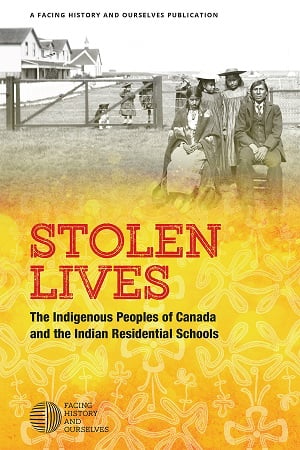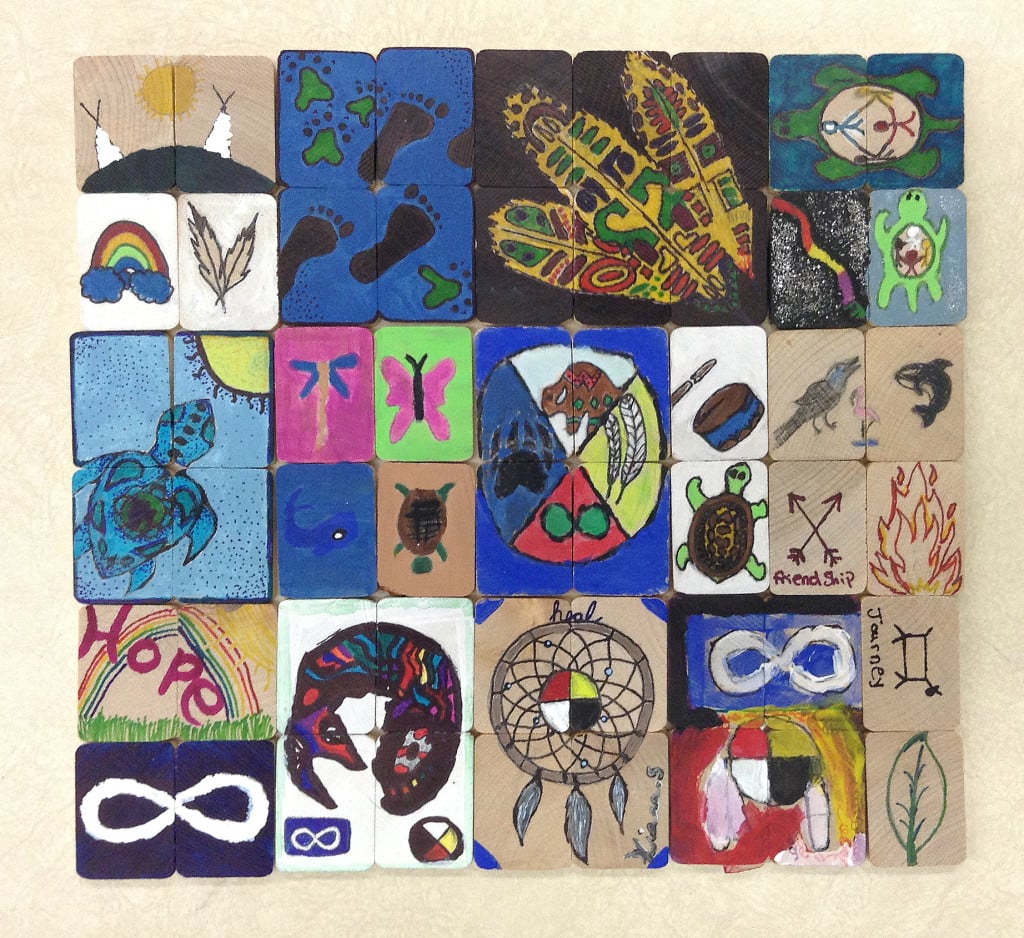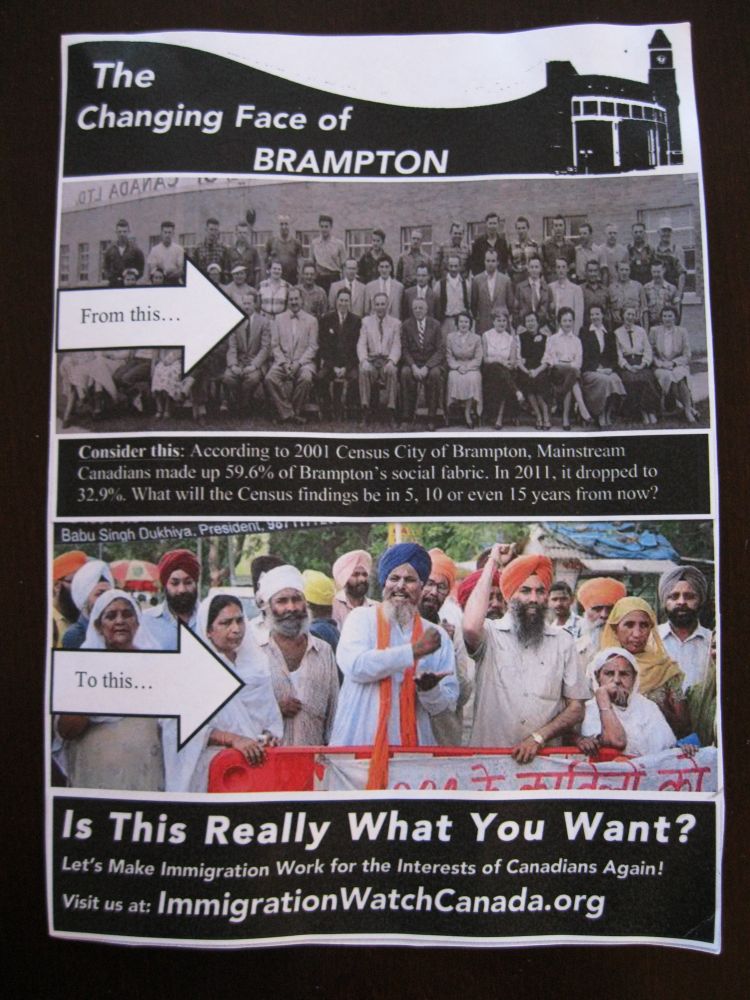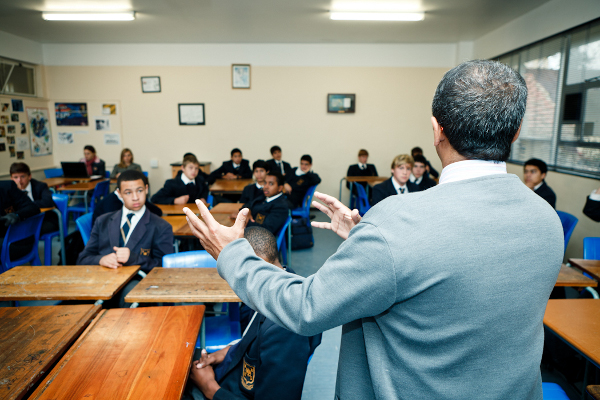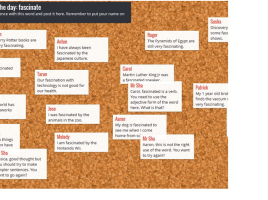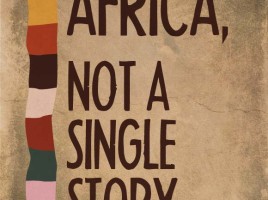Over the past number of years, I have developed quite a lot of love for Facing History and Ourselves. So much so that I thought this Valentine’s Day I would share my love to other educators by sharing five incredible resources, approaches and strategies that Facing History and Ourselves has to offer that I hope will be a gift to fellow teachers and to your classrooms.
A Valentine's Day Love Letter to Fellow Educators (and to Facing History and Ourselves)
Posted by Lindsay Hutchison on February 13, 2020
Topics: Students, Human Rights, Facing History Resources, Teaching Resources, Teachers, Genocide and Crimes Against Humanities Course
Using Facing History and Ourselves Resources and Pedagogy to teach the Grade 12 Secondary School Literacy Course
Posted by Lesa Smith on March 22, 2016
Having been an LTO (Long term occasional teacher) in the TDSB (Toronto District School Board) for several years I have taught a variety of courses with little prep time available; Facing History saved me more than a few times with their resources (and of course other teachers' contributions to this very blog). I'm delighted to be able to share some of my experience using and adapting Facing History and Ourselves resources and pedagogy in my classroom.
Topics: Film, Choosing to Participate, Human Rights, Facing History Resources, News, Identity, Facing History and Ourselves, current events, Culturally Responsive and Relevant Pedagogy, Literature Circles, Lesson Ideas, In the news, English Classroom, Social Justice, Literature, Personal history, English
The truth needs to be told. The truth needs to be taught.
-Anonymous student
This year has brought a lot of change to my classroom - for one, it’s in a new school! I started the year at Central Toronto Academy (CTA) in downtown Toronto. It has been a fantastic experience working with the staff and getting to know a whole new group of students. I was particularly excited to bring Facing History and Ourselves into a new school and see how it was picked up by students unfamiliar with the organization and it's pedagogy.
Topics: Choosing to Participate, Human Rights, History, Canada, EdTech, Technology, Truth and Reconciliation, Indigenous History, current events, Indigenous, In the news, Social Justice, reflection
Stolen Lives: The Indigenous Peoples of Canada and the Indian Residential Schools.
Posted by Leora Schaefer on November 26, 2015
On November 26, we released Stolen Lives: The Indigenous Peoples of Canada and the Indian Residential Schools. This new resource brings educators new primary sources and first-person accounts about a painful period in Canadian history, when about 150,000 Indigenous children were forcibly taken from their families and stripped of their language, culture, and traditions.
Topics: Human Rights, Facing History Resources, Identity, Facing History and Ourselves, History, Canada, Racism, current events, We and They, Culturally Responsive and Relevant Pedagogy, genocide, legacy, In the news, English Classroom, Social Justice
Six years ago, Prime Minister Stephen Harper made a public apology on behalf of all Canadians for the residential schools the government of Canada created in the 19th century that plagued the fabric of Canadian history for generations to come. Between 1880 and 1996, more than 150,000 First Nations, Inuit, and Métis children were forced into Indian residential schools and thousands did not survive. Those that did survive suffered a loss of language, culture, family, and self. Many suffered abuse at the hands of those who were supposed to care for them.
Topics: Art, Choosing to Participate, Human Rights, History, Innovative Classrooms, Memorial, We and They, Culturally Responsive and Relevant Pedagogy, Social Justice
Facing History Students in Brampton Counter Anti-Immigration Flyer with Positive Message
Posted by Ben Gross on May 28, 2014
Topics: Choosing to Participate, Human Rights, Identity, Innovative Classrooms, current events, We and They, In the news, CHG, Social Justice
Later this week, South Africa will celebrate 20 years of democracy – on April 27, 1994, citizens of the country voted alongside one another in the first post-apartheid elections. The case study of South Africa is an important one to introduce students to ideas about global citizenship, while teaching about the formation and strategies of the anti-apartheid movement. Check out the five resources below to help plan a lesson that explore issues of human rights and this important moment in South African history in your classroom:
Topics: Choosing to Participate, Human Rights, Facing History Resources, Identity, History, Memorial, current events, We and They, In the news, Social Justice
Terrific EdTech Tips: Top 5 Posts from Facing History's Tech Blog
Posted by Ben Gross on December 18, 2013
Topics: Professional Development, Choosing to Participate, Human Rights, Facing History Resources, Identity, History, Technology, Best of..., Lesson Ideas, Holocaust and Human Behaviour, Social Justice
Topics: Choosing to Participate, Human Rights, Facing History Resources, Best of..., Lesson Ideas, Holocaust and Human Behaviour, Social Justice, reflection
Two years ago, I was offered a few teaching positions at different schools after having a number of interviews within my board. One of these was at Nelson Mandela Park PS, an inner city school in Regent Park in downtown Toronto. After a little debate and reflection, I knew in my heart, I wanted to be part of a school whose namesake was one of the greatest political leaders of our time, a man whom I regarded as one of my personal heroes. It was also a homecoming for me as I did my student teaching and also volunteered in the Regent Park community. I knew choosing to teach at a school named after Nelson Mandela was an honour, and that my teaching practice would have to reflect the values of this great man.
Topics: Human Rights, Identity, History, Memorial, Regent Park, current events, Nelson Mandela, In the news, Social Justice, Personal history

.png)
